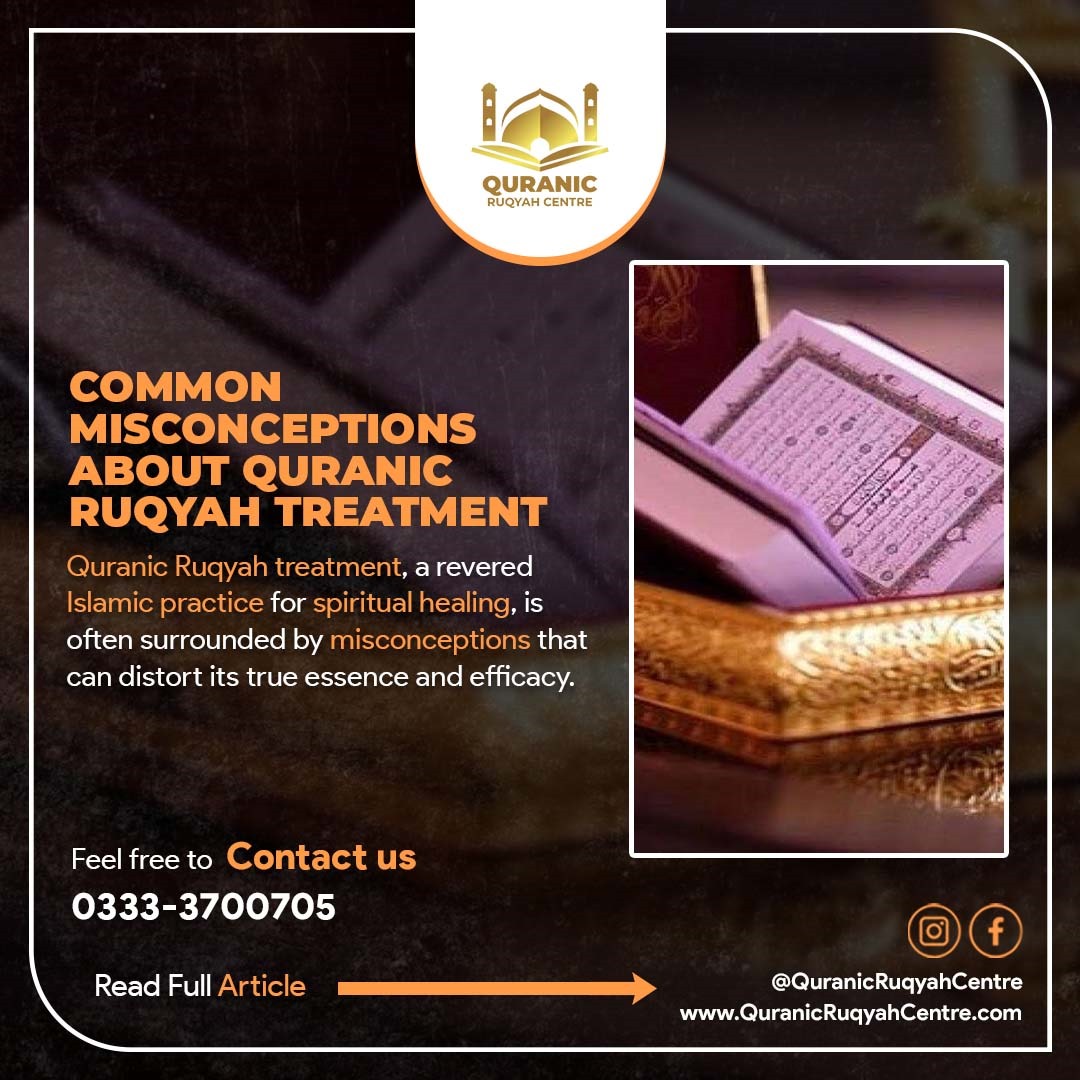
Introduction Common Misconceptions about Quranic Ruqyah Treatment:
Quranic Ruqyah treatment, a revered Islamic practice for spiritual healing, is often surrounded by misconceptions that can distort its true essence and efficacy. This article aims to debunk common misunderstandings associated with Ruqyah therapy, shedding light on its principles and dispelling myths that hinder its proper understanding.

1. Misconception: Ruqyah is a Replacement for Medical Treatment.
Clarification: One of the most prevalent misconceptions about Ruqyah therapy is that it can replace conventional medical treatment for physical ailments. In Islam, seeking medical assistance is encouraged, and Ruqyah is viewed as a complementary form of therapy. Believers are advised to utilize both spiritual and medical resources for comprehensive healing, recognizing the importance of addressing both physical and spiritual dimensions of health.
2. Misconception: Ruqyah is Limited to Exorcism of Jinn.
Clarification: While Ruqyah therapy can address afflictions caused by malevolent jinn, it is not limited to exorcism alone. Ruqyah encompasses a holistic approach to spiritual healing, addressing a wide range of ailments, including evil eye, black magic, psychological distress, and physical illnesses. Its efficacy extends beyond exorcism to promote overall well-being and protection through the recitation of Quranic verses and supplications.
3. Misconception: Only Specialized Healers Can Perform Ruqyah.
Clarification: While there are individuals with expertise in Ruqyah therapy, the recitation of Quranic verses for healing is not limited to specialized healers. Any knowledgeable and devout Muslim can perform Ruqyah, provided they adhere to Islamic guidelines and principles. The key lies in sincerity, faith, and adherence to Quranic teachings rather than specialized training or certification.
4. Misconception: Ruqyah is Superstitious or Unscientific.
Clarification: Some skeptics dismiss Ruqyah therapy as superstitious or unscientific, overlooking its spiritual and psychological dimensions. While empirical evidence may not fully capture the metaphysical aspects of Ruqyah, scientific research has shown correlations between Quranic recitations and positive neurological responses, such as reduced stress and increased feelings of tranquility. Ruqyah therapy aligns with Islamic teachings and principles, offering believers a holistic approach to healing rooted in faith and divine guidance.
5. Misconception: Ruqyah Guarantees Immediate Results.
Clarification: While Ruqyah therapy can yield profound effects, it is not a quick fix or a guarantee of immediate results. Healing is ultimately in the hands of Allah, and outcomes may vary depending on factors such as faith, sincerity, and the individual’s spiritual condition. Believers are encouraged to remain patient, persistent, and consistent in their practice of Ruqyah, trusting in Allah’s timing and wisdom.
Conclusion:
Dispelling common misconceptions about Quranic Ruqyah treatment is essential for fostering a deeper understanding of its principles and practices. By debunking myths and clarifying misconceptions, believers can approach Ruqyah therapy with greater confidence, sincerity, and adherence to Islamic teachings. May Allah guide us all in seeking healing and protection through the spiritual remedies prescribed in the Quran.
